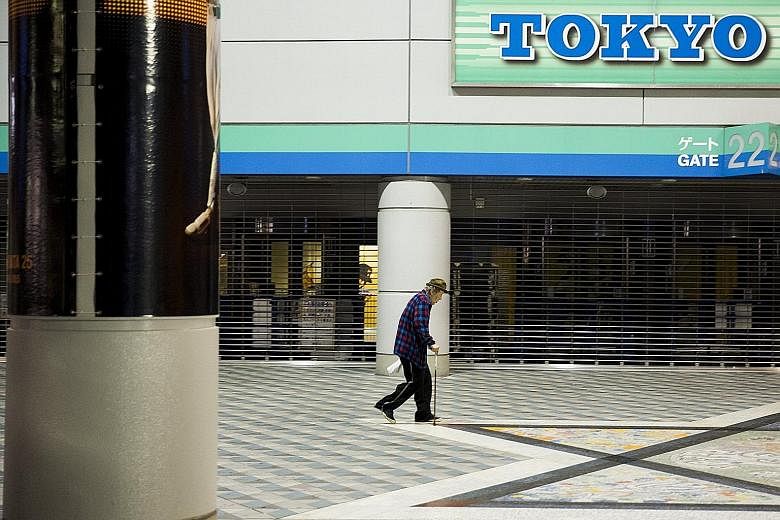TOKYO • Japanese mayor Yukio Takano has a problem. Since 1980, the number of children in his Tokyo ward has halved, while the elderly population has doubled - and he is running out of space to build more nursing homes in the Japanese capital's most densely populated borough.
A possible solution: Relocate his older constituents to the countryside. It is an audacious idea, and it is none other than Prime Minister Shinzo Abe who is pushing it. His government sees an exodus of elderly to rural precincts as the best way of coping with Tokyo's rapidly ageing population and shrinking numbers elsewhere.
"For sure, people are going to say this is like throwing out your granny, or pushing out people who don't want to go, but that's not the case," said Mr Takano, who is surveying residents of his Toshima ward on such a plan. Still, he said: "Japan is doomed if people in Tokyo can't co- exist, and we can't get the countryside reinvigorated."
Mr Abe's government is trying to reverse two unwelcome trends. A surge in Tokyo's elderly population over the next 10 years may overwhelm urban healthcare systems; while depopulation and stagnant economies in rural Japan are set to leave nursing homes and hospitals half-empty.
Eighty minutes by express train from Mr Takano's ward is the town of Chichibu, where the population has been decreasing since 1975. While the town's centre is lined with shuttered businesses and abandoned buildings, it does have plenty of empty nursing-home beds and underused medical facilities.
Japan's population is set to drop by more than 700,000 a year on average between 2020 and 2030, when almost a third of the population will be 65 or older, according to the National Institute of Population and Social Security Research.
At the same time, the government's ability to extend financial incentives to spur population growth is limited, with central government debt at more than double that of gross domestic product, said Mr Shigeru Ishiba, Mr Abe's man in charge of stemming population decline.
"What we're asking active seniors is whether they would like to work in a new location, to continue to study or just do something new in a new location," said Ms Akiko Ito, a deputy general director in Mr Abe's government, charged with overcoming population decline.
For officials like Ms Ito, the ideal candidates for relocation are older citizens who are still healthy and, in some cases, interested in continuing to work.
One 71-year old woman at Mr Takano's Toshima ward said the plan had the hallmarks of dumping some old unwanted granny.
Others may have no choice but to move. Many elderly Tokyo citizens will have to leave their homes at some point, as they become incapable of caring for themselves, said Mr Koichi Murakami, 80, who lives in Tokyo's Kachidoki town with his wife. "I am looking for care facilities around Tokyo for elderly neighbours living alone to move to when families can't take care of them," he said.
BLOOMBERG

